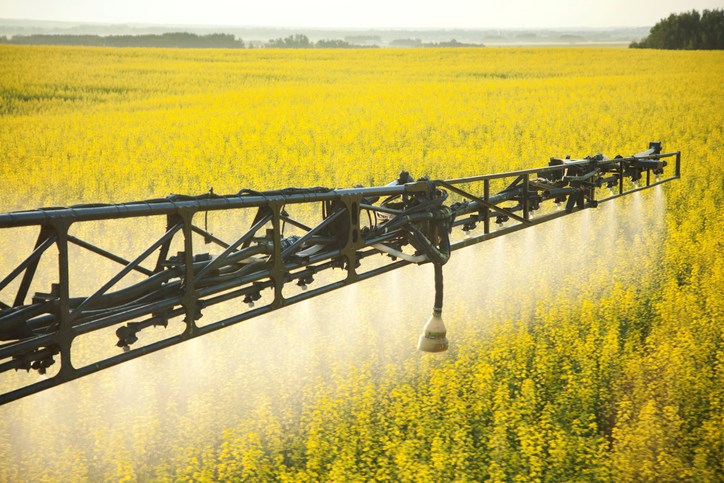A common herbicide chemical used by Canadian farmers has been disallowed for this year in the United States.
A federal U.S. Court of Appeal disallowed registration of dicamba for 2020 in early June saying the U.S. Environmental Protection Agency “substantially understated risks that it acknowledged” when approving the chemical.
Dicamba has been used to develop weed-tolerant crop varieties and has long been used to control broadleaf and grassy weeds.
The products are used as an alternate to glyphosate (Roundup) and mixed with glyphosate to controls weeds as well as in lawn weed killers.
According to the Canadian government, between 500,000 and one million kilograms of dicamba are sold in Canada every year.
Three of four dicamba products, Engenia, FexApan and XtendiMax had their U.S. registrations pulled.
Before being registered as weed-tolerant for corn, soybeans and cotton, dicamba was used to spray for weeds before crops emerged and after harvest.
When used in actual crops the chances of spray drift increase if factors such as proper nozzles, water volumes and weather are not considered appropriately.
Canada’s Pest Management Regulatory Agency says the U.S. court ruling doesn’t affect registration of these chemicals in Canada as Health Canada follows its own rules to determine safety of farm chemical products.
Bayer Chemical, one of the four makers of dicamba products, disagrees with the court ruling and plans to re-register the product in 2021.
The lawsuit was filed by the National Family Farm Coalition Center for Food Safety, Centre for Biological Diversity and Pesticide Action Network, alleging unlawful approval of the products.
Since 2017 versions of dicamba have been sold hundreds of lawsuits have been filed in the United States claiming damage to crops and natural habitat.
A Missouri jury awarded $265 million to a peach farmer for dicamba damage to his crops.
Environment Canada says six per cent of inspected Ontario private farm wells contained dicamba. Traces have been found in Manitoba waterways.
Ron Walter can be reached at [email protected]

.png;w=120;h=80;mode=crop)


